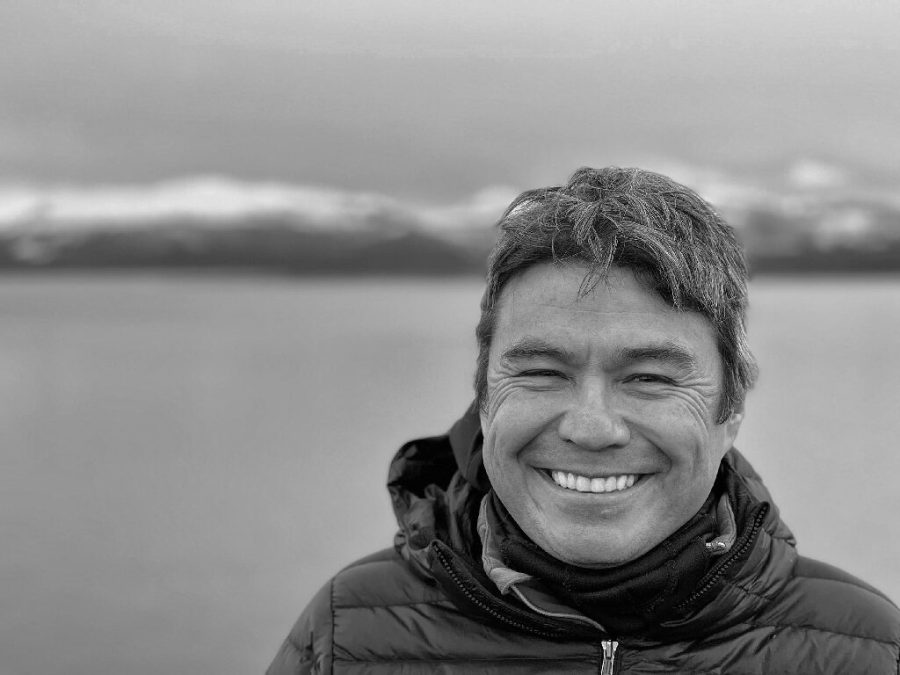UI alum leads national efforts in climate activism
CEO of the Global Methane Hub and a former Chilean environment minister Marcelo Mena-Carrasco dedicates his life to tackling environmental issues after seeing an oil spill as a child.
March 5, 2023
Marcelo Mena-Carrasco often played in a stream by his house as a child near Santiago, Chile. The stream was frequently polluted and surrounded by trash. One day, as his mother scrubbed the oil off his skin, he looked and saw a bird, helpless and covered in oil.
“In comparison, it hurt me so bad to have the petroleum being scrubbed off my skin and what it meant to the animal,” Mena-Carrasco said.
This experience had a lasting effect on Mena-Carrasco, who received his master’s and doctorate degrees in environmental engineering from the University of Iowa. Mena-Carrasco has since become one of Business Insider’s 30 top global climate action leaders through his environmental initiatives as the CEO of Global Methane Hub, a company that focuses on methane mitigation funding, and as a former minister and vice minister for the environment in Chile from 2014 to 2018.
Mena-Carrasco lived in a lower-income community in Chile and was exposed to many environmental problems.
“Trash is not handled correctly,” he said. “Water streams are dirty.”
Later in his youth, Mena-Carrasco moved to Iowa City while his dad pursued a doctorate degree. He remembers seeing an exhibit at the UI Museum of Natural History on the “Silent Spring,” a movement that presented a view of nature compromised by synthetic pesticides.
When he returned to Chile at 12 years old and compared his home country’s pollution level to Iowa’s, he decided he wanted to make a difference in his community.
“Another way to contribute to lower-income communities is to work on environmental issues because they are the ones that are most impacted by those issues,” Mena-Carrasco said.
He moved back to Iowa City to pursue his degrees in environmental engineering, which he finished in 2007. While he studied water quality, he chose to study under the UI College of Engineering’s Richard Valentine, a professor of civil and environmental engineering. Valentine described Mena-Carrasco as a great student.
“He was a happy person, and he persevered on and on,” Valentine said. “His career is great. The more trouble you make, the better you are.”
Mena-Carrasco also became a founding member of the student chapter of Engineers for a Sustainable World, where he collaborated with the university on climate issues.
RELATED: UI alum Marcelo Mena-Carrasco received the International Impact award
“We did all sorts of advocacy issues and campaigns to save energy at the university,” Mena-Carrasco said. “That was sort of the initial steps to what ended up being the Office of Sustainability that the University of Iowa has today.”
Craig Just, a UI assistant professor of civil and environmental engineering who has worked with Mena-Carrasco, said he admires his sustainability work and his effort to bring the campus off coal.
“He’s an activist. Everything he does implies action,” Just said. “He’s a leader, people will follow him, and people get inspired by the energy he puts behind the causes he believes in.”
Mena-Carrasco was also able to participate in study-abroad opportunities at the UI through the Center for Global and Regional environmental research. This gave him the privilege of working in many multicultural environments.
“We traveled the globe in different measurement campaigns with NASA,” Mena-Carrasco said. “And so that helped me become a very solid air quality modeler.”
Later on, he used these skills as an environment minister for Chile, where he tackled environmental initiatives.
“I set up, with some colleagues from the University of Iowa, the air quality forecasting system for the country, which helped prevent bad air and save lives,” Mena-Carrasco said.
The 45,000 square kilometers of national parks he helped establish are comparable to the size of Switzerland. Additionally, he helped institute the first national ban of plastic bags in Latin America, helped to craft an agreement to phase out coal power generation in Chile, and worked at the World Bank — leading the policy side of climate — where he launched a coalition of finance ministers for climate action.
“Whether it be local activism at the university, whether it be at the World Bank, I’m always going to be the activist that is saying things that some people might like and aspire and some people just might be annoyed by,” Mena-Carrasco said.



